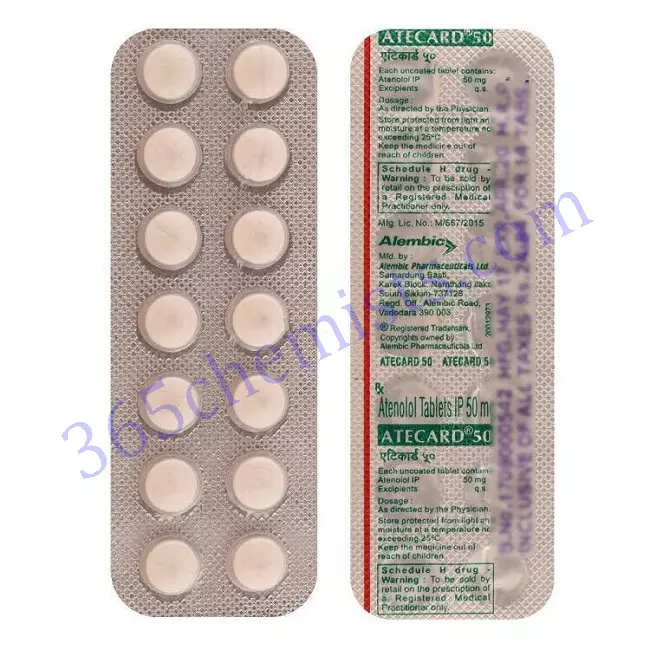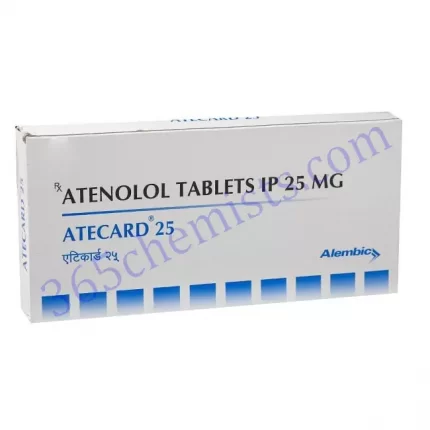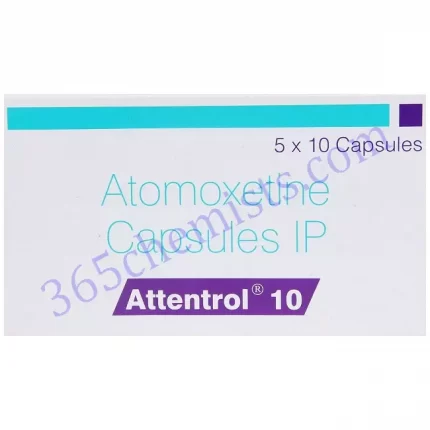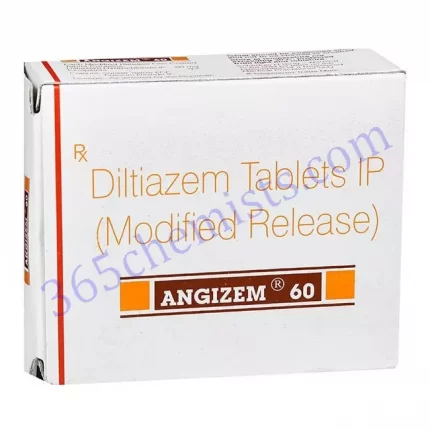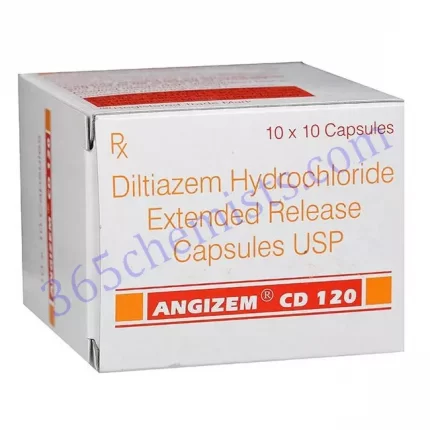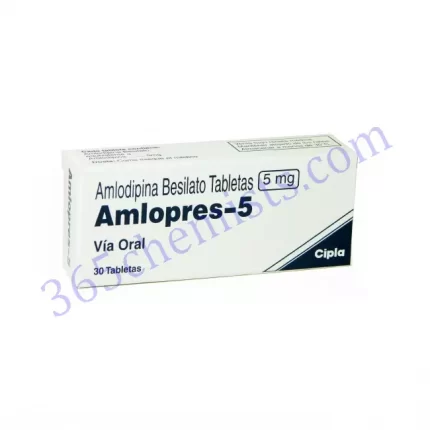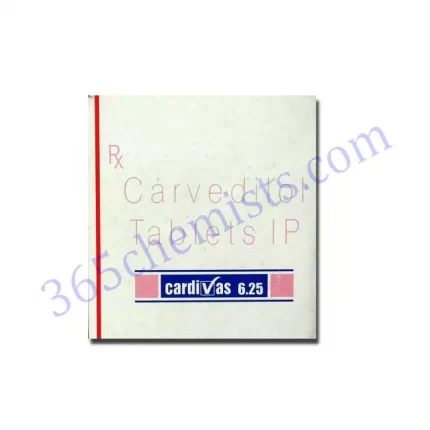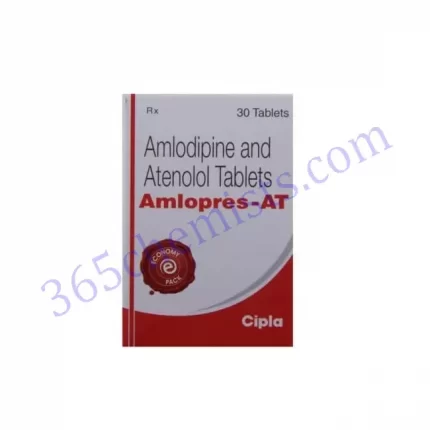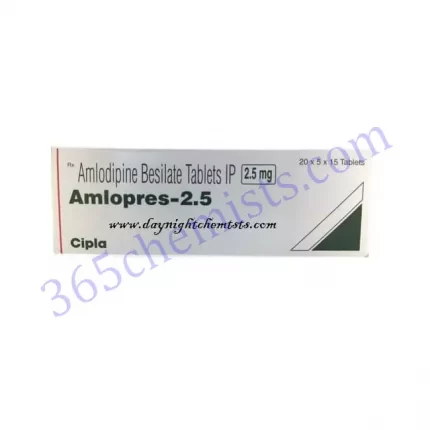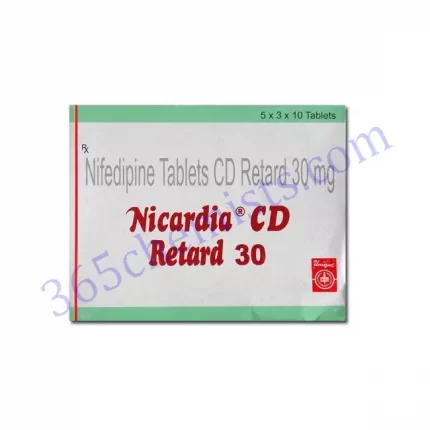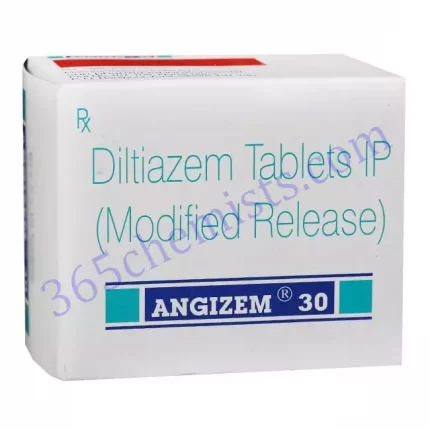INTRODUCTION
ATECARD 50MG contains Atenolol which belongs to the group of medicines called beta-blockers. It is used in the treatment of high blood pressure (hypertension) and arrhythmia (uneven heart beats). High blood pressure (hypertension) is a condition in which the blood exerts an increased pressure against the walls of blood vessels. If left untreated, it may lead to damage of blood vessel, kidney problems, stroke and other heart problems. Arrhythmia is a heart condition in which there is an improper generation or conduction of cardiac impulses which affects the normal cardiac rhythm.
ATECARD 50MG can be used in the prevention of angina pectoris (chest pain) and also offers protection to the heart in the early treatment after a heart attack (myocardial infarction). Atenolol acts by slowing the heart rate and force of contraction which makes your heart pump slowly with less force. Along with the treatment, your doctor might ask you to make certain lifestyle changes such as quitting alcohol and smoking, improve your sleep at night, eating a healthy diet and manage weight.
The most common side effect of taking this medicine is an initial decrease in pulse rate. This is usually normal and disappears with time. However, if it bothers you contact your doctor. Others include nausea, dizziness and tiredness. Before taking this medicine, inform your doctor if you have any other heart problems or kidney problems. ATECARD 50MG should be used with caution in pregnant or breastfeeding women and in elderly patients. Consult your doctor before taking. Do not use this medicine in children under 18 years without consulting a doctor.
USES OF ATECARD 50MG
- Treats high blood pressure and arrhythmia (uneven heart beats)
- Prevents angina pectoris (chest pain) and recurrence of heart attack
HOW ATECARD 50MG WORKS
Following oral administration, atenolol selectively binds to and inhibits the activity of beta 1-adrenergic receptors, which reduces the heart rate, force of contraction and cardiac output, leading to decrease in blood pressure. It also decreases cardiac workload and oxygen demand which helps in protecting the heart against heart attack and chest pain.
Related Product
DIRECTIONS FOR USE
Take this medicine as directed by your physician. Swallow the medicine as whole with a sip of water. Do not crush or chew the medicine. Your doctor will decide the correct dose and duration for you depending upon your age, weight and health condition. Continue to take this medicine, as long as your doctor tells you to do so, to obtain better results.
SIDE EFFECTS OF ATECARD 50MG
SERIOUS
- Allergic reaction (such as skin rash with lumps, swelling of your face, lips, mouth, tongue or throat)
COMMON
- Decreased pulse rate
- Cold hands and feet
- Diarrhea
- Feeling sick (nausea)
- Feeling tired
RARE
- Signs of heart block (such as abnormal heart rate, dizziness, tiredness or fainting)
- Raynaud’s disease (numbness and spasm in fingers followed by warmth and pain)
- Mood changes, nightmares, confusion, hallucinations
- Headache, dizziness
- Tingling sensation of hands
- Impotence (unable to get an erection)
- Dry mouth
- Dry eyes or visual disturbances
- Hair thinning
- Bleeding
- Purplish marks on your skin
- Jaundice (yellowing of skin and eyes)
HOW TO MANAGE SIDE EFFECTS
Feeling sick (nausea):
Try taking this medicine with, or just after meals. Stick to simple meals. Do not eat rich or spicy food.
Diarrhea:
Drink lots of fluids, such as water or juice, to avoid dehydration. Do not take any medicines without speaking to a doctor.
Headache:
Rest and drink plenty of fluids. Do not drink too much alcohol.
Dizziness:
Try to rest and relax. Get enough sleep. Avoid traveling, driving or operating any tools or machines while you are feeling dizzy. If the symptom still persists, contact your doctor for advice.
WARNING & PRECAUTIONS
PREGNANCY
ATECARD 50MG should be used with caution in pregnant women. Consult your doctor before taking this medicine.
BREASTFEEDING
ATECARD 50MG should be used with caution in breastfeeding women. Consult your doctor before taking this medicine.
DRIVING AND USING MACHINES
Do not drive or operate any machines if your ability is affected by this medicine.
ALCOHOL
Avoid consumption of alcohol while taking this medicine.
KIDNEY
ATECARD 50MG should be taken with caution in patients with severe kidney disease. Consult your doctor for advice.
ALLERGY
Do not take this medicine if you are allergic to Atenolol.
LUNGS
ATECARD 50MG is not recommended for use in patients having asthma, wheezing or any other similar breathing problems. Consult your doctor for advice.
HEART DISEASE
ATECARD 50MG is not recommended for use in patients who have or ever had uncontrollable heart failure, heart block, very slow heart beats, very low blood pressure, Prinzmetal’s angina or poor circulation. Consult your doctor before taking this medicine.
OTHERS
Before taking ATECARD 50MG, inform your doctor if you:
- Have phaeochromocytoma (tumor of the adrenal glands)
- Have metabolic acidosis (higher acid levels in blood)
- Have diabetes
- Have thyrotoxicosis (an overactive thyroid gland)
- Have psoriasis (a skin disease)
- Are going to have an operation or surgery
INTERACTIONS
Talk to your doctor, if you are taking,
- Other medicines used to treat high blood pressure or chest pain (e.g. furosemide, guanethidine, reserpine, captopril, enalapril, verapamil, diltiazem and nifedipine)
- Medicines used to treat abnormal heartbeat (e.g. disopyramide, quinidine, amiodarone, digoxin or procainamide)
- Medicines used to treat inflammation or pain (e.g. Ibuprofen or indomethacin)
- Medicines used to treat diabetes (e.g. metformin, gliclazide, rosiglitazone or insulin)
- Clonidine (a medicine used to treat both high blood pressure and migraine)
- Adrenaline or noradrenaline (affects that stimulation of your heart)
- Lidocaine (a local anesthetic)
- Medicines to treat nasal congestion (e.g. oxymetazoline)

